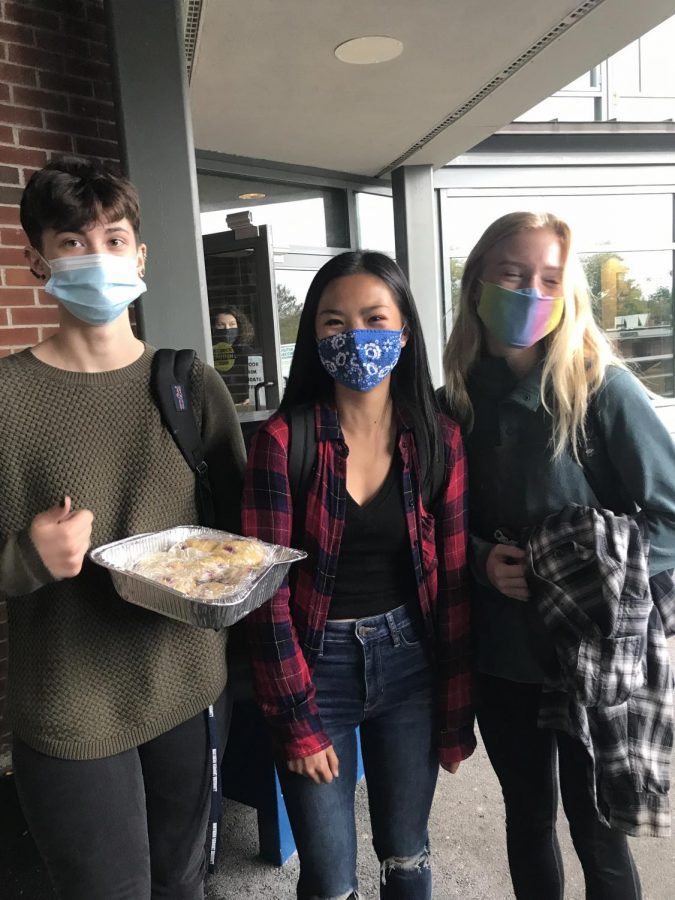Early College: NVU’s hidden population
College is many people’s first real decision as an adult. Where, when and even if you will go are the questions high school seniors are often asked.
But what about the seniors already there?
Every year, 30 to 50 students on the NVU-Johnson campus are still technically in high school. For the past seven years, the state of Vermont has been paying for college seniors to attend various institutions around the state. These Early College students are coming from over 30 schools, ranging from Woodstock to Lamoille Union.
While many high school students will say that senior year is the year that they’re most looking forward, others have had enough.
“I’ve just exhausted every STEM course offered at Lamoille,” said George Sullivan. He also said that NVU provides more rigorous and academically challenging classes, which he is looking for after a particularly lackluster science class as a sophomore and a full year of online courses last year.
Sullivan is hardly alone. Seeking more variety and challenge are two prominent reasons high school students choose the early college alternative. “I had run out of classes I wanted to take at U-32,” said Tzevi Schwartz, an Early College student at Norwich. “I didn’t want my senior year to be a waste.”
Russ Weis, a part-time instructor in the Writing and Literature department at NVU and a former Early College advisor, has another perspective on it. When asked why a student would choose Early College, he said, “Because they’re smart. They’re getting their senior year of high school out of the way, and they’re getting the first year of college at the same time. And it’s paid for. That’s a no brainer.”
The Lamoille Union High School counselor in charge of Early College and Dual Enrollment, Deb Zmich, sees a lot of reasons for her students choosing the early college experience. “A lot of kids do it because they really don’t want to be in high school anymore. They’re old souls and are sick of being around teenagers, and want to do something else besides high school,” she said.
Students definitely agreed with this reason. “I don’t think I could’ve survived another year in high school,” says Reagan Decker, from Enosburg Falls High School. While happy to be at NVU, she said some of her classes are insufficiently challenging. “ [I’m] kind of disappointed in how easy the classes are,” she said. “We’re going over stuff in my math class that I learned two years ago.”
Mei Elander, also from Enosburg Falls High School, noted that she was looking forward to broadening her horizons, and meeting new people since she felt that her high school was pretty small. “I really love all my professors and all my classes. And I think I’m meeting some really interesting people and getting opportunities that I wouldn’t have had at high school,” she said.
So who makes up this largely hidden population at NVU? While the consensus is that there is no specific academic profile of an early college student, one trait seems evident to Sara Kinerson, the director of NVU-Johnson’s Advising and Registration center.
“The students who choose to participate in early college are very motivated,” she said, “You’re choosing to do something beyond your comfort zone if you do Early College. You’re choosing to step out of that comfortable senior year experience in high school, and go immerse yourself in a college experience. So, again, this is generalizing, but it feels like early college students are quite motivated and academically striving for success.”
While it varies year to year, Kinerson says many of the Early College students decide to stay. Some continue on to get a bachelor’s degree, finishing only three years after they graduate from high school, while others only stay for one more year, getting an associate degree.
For whatever the reasons, most seem glad to have made the choice. “I did Early College because of COVID,” said Liam McGee, a former early college student who now goes to Westminster College. “I’m really glad that I did, though. I think that learning to work in the college schedule really prepared me for being at college full time. And since the social part [of high school] was weird anyway because of COVID, I didn’t really miss out on much.”



